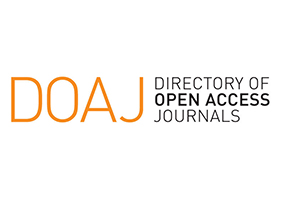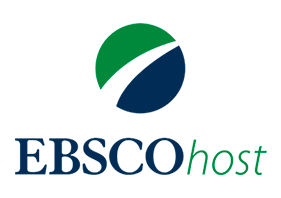Digital Transformation for Knowledge Management in Practice: A Case Study in the Public Sector
DOI:
https://doi.org/10.33304/revinv.v18n1-2023007Keywords:
knowledge management, information technology, management information systems, organization and management, case studiesAbstract
The Unidad de Planeación Minero Energética (UPME) In its Digital Transformation Process, has been consolidating efforts to optimize its processes and improve knowledge management in its plans, programs and projects portfolio. This paper aims to illustrate the contrast between knowledge management theory and business practice in public management. The study design was developed under a qualitative descriptive approach, using the case study methodology. The consolidation of theories and practical organizational experiences and their integration with information systems was contemplated. The results suggest the structuring of organizational knowledge as a main source of competitive advantages. However, knowledge must be organized and standardized to achieve a company's strategic objectives; So, it is necessary to have knowledge management processes and facilitators such as information technologies and control mechanisms. It was concluded that management, organization and leadership play a fundamental role in these practices.Downloads
References
Alavi, M., & Leidner, D. E. (2001). Review: Knowledge management and knowledge management systems: Conceptual foundations and research issues. MIS Quarterly: Management Information Systems, 25(1), 107–136. https://doi.org/10.2307/3250961
Alvarenga, A., Matos, F., Godina, R., & Matias, J. C. O. (2020). Digital transformation and knowledge management in the public sector. Sustainability (Switzerland), 12(14). https://doi.org/10.3390/su12145824
Arbabi, H., Salehi-Taleshi, M. J., & Ghods, K. (2020). The role of the project management office in developing knowledge management infrastructure. Engineering, Construction and Architectural Management, 27(10), 3261–3287. https://doi.org/10.1108/ECAM-11-2019-0600
Aviv, I., Hadar, I., & Levy, M. (2021). Knowledge management infrastructure framework for enhancing knowledge-intensive business processes. Sustainability (Switzerland), 13(20). https://doi.org/10.3390/su132011387
Castaneda, D. I., & Toulson, P. (2021). Is it possible to share tacit knowledge using information and communication technology tools? Global Knowledge, Memory, and Communication, 70(8–9), 673–683. https://doi.org/10.1108/GKMC-07-2020-0102
CEIB. (2021). Actividad enmarcada en las reuniones preparatorias del XIII encuentro empresarial iberoamericano, en el marco de la XVII cumbre iberoamericana de jefes de estado y de gobierno de Andorra 2021. La transformación digital, un nuevo escenario de futuro en Iberoamérica, 4–50. http://www.andi.com.co/Uploads/INFTD.pdf
Di Vaio, A., Palladino, R., Pezzi, A., & Kalisz, D. E. (2021). The role of digital innovation in knowledge management systems: A systematic literature review. Journal of Business Research, 123(May 2020), 220–231. https://doi.org/10.1016/j.jbusres.2020.09.042
DNP. (2022). Pacto por la Transformación digital en Colombia. Departamento Nacional de Planeación. https://www.dnp.gov.co/DNPN/Plan-Nacional-de-Desarrollo/Paginas/Pactos-Transversales/Pacto-transformacion-digital-de-Colombia/Transformacion-digital.aspx
Duffield, S., & Whitty, S. J. (2015). Developing a systemic lesson learned knowledge model for organizational learning through projects. International Journal of Project Management, 33(2), 311–324. https://doi.org/10.1016/j.ijproman.2014.07.004
Función Pública. (2021). Manual Operativo del Integrado de Planeación y Gestión - MIPG. Versión 4. https://www.funcionpublica.gov.co/documents/28587410/34112007/Manual+Operativo+MIPG.pdf/ce5461b4-97b7-be3b-b243-781bbd1575f3?t=1638367931337
FURAG. (2019). Instructivo para el ingreso y diligenciamiento del Formulario Único de Reporte de Avances de la Gestión FURAG. https://www.funcionpublica.gov.co/eva/admon/files/empresas/ZW1wcmVzYV83Ng==/archivos/1508293325_d49b6de40deb93116e6eddd116ca34b9.pdf
Gamble, J. (2019). Tacit vs explicit knowledge as antecedents for organizational change Author: Journal of Organizational Change Management, 9–25. https://doi.org/: https://doi.org/10.1108/JOCM-04-2020-0121
Ghasemi, B., Khalijian, S., Daim, T. U., & Mohammadipirlar, E. (2021). Knowledge management performance measurement based on World-Class Competitive Advantages to develop strategic-oriented projects: Case of Iranian oil industry. Technology in Society, 67(May), 101691. https://doi.org/10.1016/j.techsoc.2021.101691
Greenfield, D. (2020). El futuro del trabajo que queremos: un diálogo global. Organización Internacional del Trabajo. https://www.ilo.org/wcmsp5/groups/public/---dgreports/---cabinet/documents/publication/wcms_570288.pdf
Gundermann, K. (2013). El método de los estudios de caso. En Tarrés, M. Observar, escuchar y comprender sobre la tradición cualitativa en la investigación. Cuarta Parte. El Colegio de México; FLACSO México; 1er edición. https://goo.su/QqUrxUc
Hernández, R., Fernández, C., & Baptista, M. (2014). Metodología de la Investigación (sexta edición). McGraw-Hill / Interamericana editores, s.a. de c.v.
Jhamba, A., & Steyn, H. (2021). Knowledge transfer across different boundaries in a project environment: A case study of a Botswana mining organisation. South African Journal of Industrial Engineering, 32(1), 182–195. https://doi.org/10.7166/32-1-2326
Barreto, K & Todesco, J (2021). COVID-19 crisis and SMEs responses: The role of digital transformation. Knowledge and Process Management, 28(2), 117–133. https://doi.org/10.1002/kpm.1660
Khanchel, H. (2019). The Impact of Digital Transformation on Banking. Journal of Business Administration Research, 8(2), 20. https://doi.org/10.5430/jbar.v8n2p20
Loon, M. (2019). Knowledge management practice system: Theorising from an international meta-standard. Journal of Business Research, 94(November), 432–441. https://doi.org/10.1016/j.jbusres.2017.11.022
Malhotra, Y. (1997). Knowledge management in inquiring organizations. AMCIS 1997 Proceedings, 293–295. https://www.yogeshmalhotra.com/Knowledge%20Management%20in%20Inquiring%20Organizations.pdf
Martinez, M., & Ortiz, M. (2020). Dimensions of knowledge governance in a multi-PMO project context. International Journal of Managing Projects in Business, 13(7), 1423–1441. https://doi.org/10.1108/IJMPB-11-2018-0244
Martínez, P. (2006). El método de estudio de caso Estrategia metodológica de la investigación científica. Pensamiento & Gestión, 165–193. https://www.redalyc.org/pdf/646/64602005.pdf
Mizintseva, M. F., & Gerbina, T. V. (2018). Knowledge Management: A Tool for Implementing the Digital Economy. Scientific and Technical Information Processing, 45(1), 40–48. https://doi.org/10.3103/S0147688218010094
Paass, G., Schneider, D., Wrobel, S. (2019). Information and knowledge management. Technology Guide. Springer, Berlin, Heidelberg. https://doi.org/10.1007/978-3-540-88546-7_53
Noy, C. (2008). Sampling Knowledge: The Hermeneutics of Snowball Sampling in Qualitative Research Sampling Knowledge: The Hermeneutics of Snowball Sampling in Qualitative Research. Journal of Social Research Methodology, September 2013, 327–344. https://doi.org/10.1080/13645570701401305
Pan, S. L., & Scarbrough, H. (1999). Knowledge management in practice: An exploratory case study. Technology Analysis and Strategic Management, 11(3), 359–374. https://doi.org/10.1080/095373299107401
Patton, M. Q. (2001). Evaluation, Knowledge Management, Best Practices, and High-Quality Lessons Learned. American Journal of Evaluation, 22(3), 329–336. https://doi.org/10.1177/109821400102200307
Pereira, L., Fernandes, A., Sempiterno, M., Dias, Á., da Costa, R. L., & António, N. (2021). Knowledge management maturity contributes to project-based companies in an open innovation era. Journal of Open Innovation: Technology, Market, and Complexity, 7(2). https://doi.org/10.3390/joitmc7020126
Project Management Academy. (2017). Guide to PMBOK® Project Management Academy (Project Management Academy; Sixth edit). https://projectmanagementacademy.net/articles/pmbok-6th-edition-update/
Quijano, P., & Yepes, F. (2020). Guía para la implementación de la gestión del conocimiento y la innovación en el marco del modelo integrado de planeación y gestión (MIPG). Departamento Administrativo de la Función Pública Colombiana, 1–142.
Ren, X., Deng, X., & Liang, L. (2018). Knowledge transfer between projects within project-based organizations: the project nature perspective. Journal of Knowledge Management, 22(5), 1082–1103. https://doi.org/10.1108/JKM-05-2017-0184
Shaw, E. (1999). A guide to the qualitative research process: evidence from a small.: Ingenta Connect, 2. Qualitative Market Research: An International Journal. https://www.ingentaconnect.com/content/mcb/216/1999/00000002/00000002/art00001
Suarez, M. F., Ramírez, R. H., Martínez, J., Leyva, S., Viana, R., & Sandoval, W. (2019). Guía para la incorporación de la dimensión Minero-Energética en los planes de ordenamiento departamental. En la Unidad de Planeación Minero-Energética - UPME. https://www1.upme.gov.co/simco/Cifras-Sectoriales/EstudiosPublicaciones/Guia_upme-sme_en_pod.pdf
Tariq, A., Blackburn, T. D., Olson, B. A., & Blessner, P. (2016). An Enterprise-Wide Knowledge Management Approach to Project Management. EMJ - Engineering Management Journal, 28(3), 179–192. https://doi.org/10.1080/10429247.2016.1203715
Tranfield, D., Denyer, D., & Smart, P. (2003). Towards a Methodology for Developing Evidence-Informed Management Knowledge by Means of Systematic Review. British Journal of Management. 14, 207–222. https://doi.org/10.1111/1467-8551.00375
Tsekhovoy, Alexey Philippovich, Zholtayeva, Aibarsha Serhankyzy, & Stepanov, Alexey Vladimirovich. (2019). The role of knowledge management in organizational development. Revista Espacios Vol. 40(25) 1–12. https://www.revistaespacios.com/a19v40n25/a19v40n25p11.pdf
Tshuma, B., Steyn, H., & Van Waveren, C. (2018). The role played by PMOs in the transfer of knowledge between projects: A conceptual framework. South African Journal of Industrial Engineering, 29(2), 127–140. https://doi.org/10.7166/29-2-1966
UPME. (2018). Unidad de Planeación Minero-Energética - Resolución 208 de 26 de abril de 2018. https://www1.upme.gov.co/Normatividad/208-2018.pdf
UPME. (2021). Unidad de Planeación Minero-Energética. Plan Estratégico de Tecnologías de la Información. https://www1.upme.gov.co/Planes/PETI_2021_2022.pdf
Yang, Y., Brosch, G., Yang, B., & Cadden, T. (2020). Dissemination and communication of lessons learned for a project-based business with the application of information technology: a case study with Siemens. Production Planning and Control, 31(4), 273–286. https://doi.org/10.1080/09537287.2019.1630682
Yin, R. (2008). Case Study Research: design and method. 4th Edition, Sage Publications, Thousand Oak.
Downloads
Published
Versions
- 2023-09-20 (2)
- 2022-12-31 (1)












